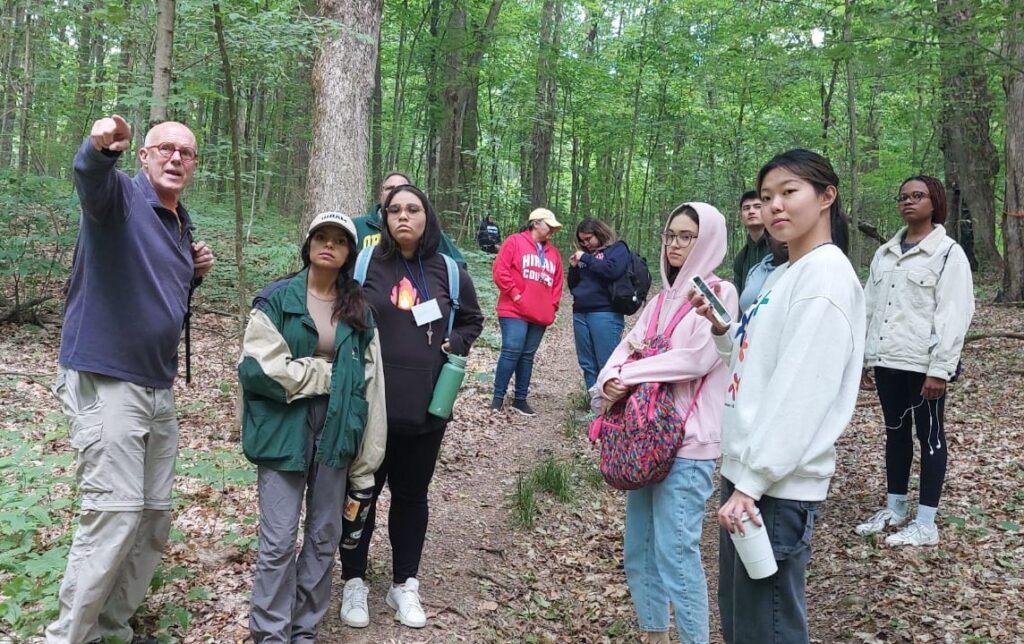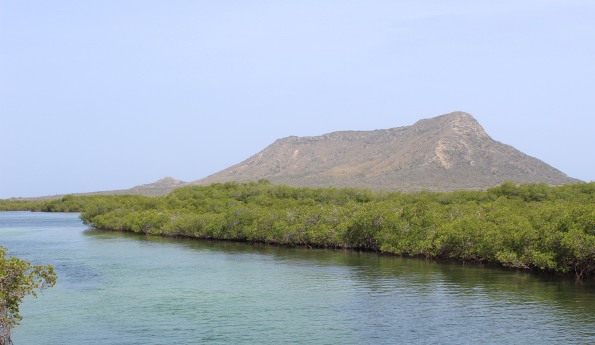In the Dominican Republic, Counterpart’s Dominican Environmental Education Program (DEEP) represents the hope that through educating and empowering communities, the blows of the climate crisis on the most vulnerable might be softened.
DEEP falls under our Coastal Climate Resiliency Program, which reinforces the resiliency of coastal communities in the Dominican Republic through integrated strategies that combine innovative place-based education, science, community development, youth empowerment, and support to national policymaking.
We recognize that the key to successful resilience to climate change is the capacity of people, families, natural systems, businesses, and government to mitigate, adapt, and recover from environmental pressures. A critical avenue to achieve this is through education that empowers the youth in communities like those of the Dominican Republic. The DEEP program, which started in 2015, works to provide environmental education within schools.

Students conduct field work while attending the LSI Institute in Ohio.
As a part of DEEP, Counterpart sent Dominican teachers, high school students, and near-peer mentors to our partner Learning Streams International’s Tree Canopy Solutions to Climate Change STEM Summer Academy Institute from June 11-14 at Hiram College in Ohio. Students learned how to gather and interpret scientific data so they can change misconceptions about trees in urban environments.
“DEEP and the LSI Institute have given me a better perspective on what it takes to educate others on environmental issues,” said Mya Navarro, a DEEP student who attended the institute. “I am excited to stay involved in environmental issues in my community, regardless of where my career takes me.”
The institute trained students from both the Dominican Republic and the United States, exploring the benefits of trees in improving air quality and reducing pollution. Students learned to leverage the iTree tools developed by the U.S. Forest Service, as well as other online resources. They also gained field experience through hands-on lessons in plant species, tree cover, hydrologic processes, and other related topics. The institute aimed to empower the students to become community organizers who will advocate for simple tree canopy solutions to issues such as heat islands, excess stormwater runoff, heating and cooling of buildings, air pollution reduction, and emotional health.
“These experiences have helped me develop my leadership skills and gave me the confidence to lead conversations and activities dealing with the environment and conservation efforts,” Navarro said, who first became involved with environmental conservation through beach cleanup activities. “Seeing the severity of the plastic pollution in my community inspired me to get involved.”
DEEP student Ashley Peralta was initially unsure if she would fit in with the other students attending the institute. “I left the experience feeling like I have a family with them,” she said, “I really want kids back home in the Dominican Republic to be able to experience the same learning opportunities I got at the LSI Institute.”
Education that empowers youth in communities that are among the most threatened by climate change and the destruction of ecosystems is critical to making lasting change. Counterpart embraces this principle through the DEEP program—connecting youth with community-based science education and research opportunities that give them the tools they need to build sustainable livelihoods in their own communities.




